Keywords: G20
There are more than 24 results, only the first 24 are displayed here.
Become a subscriber for more search results.
-

ECONOMICS
It is a truism to say that the way money is constructed defines the power structure under which we live. But allowing private actors to manipulate and game the financial system has not just given them extraordinary power, it has undermined the way money itself is understood.
READ MORE 
-
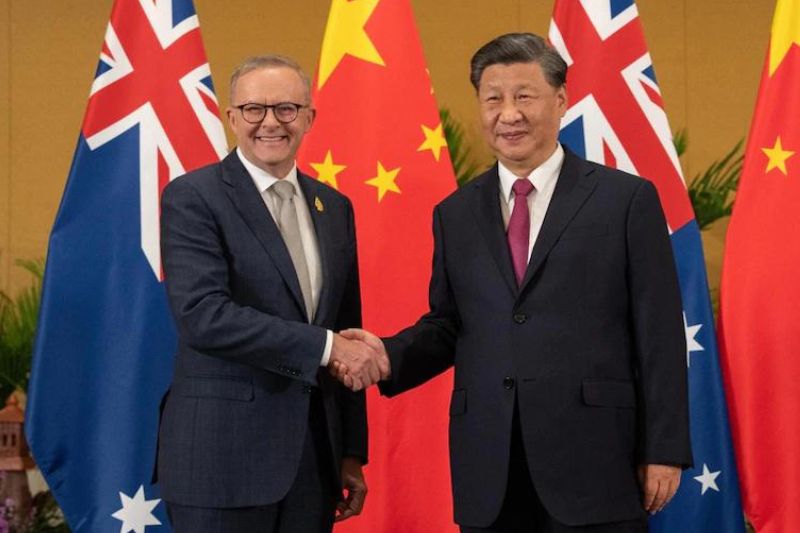
INTERNATIONAL
- Jeremy Clarke
- 13 November 2023
8 Comments
In a global landscape increasingly marked by fluid alliances, Prime Minister Albanese's diplomatic foray from Washington to Beijing had the dual aim of warming frosty relations with China and reinforcing the significance of foundational ties. This is not merely diplomatic choreography; it’s a story of Australia redefining its place in a complex global narrative.
READ MORE
-
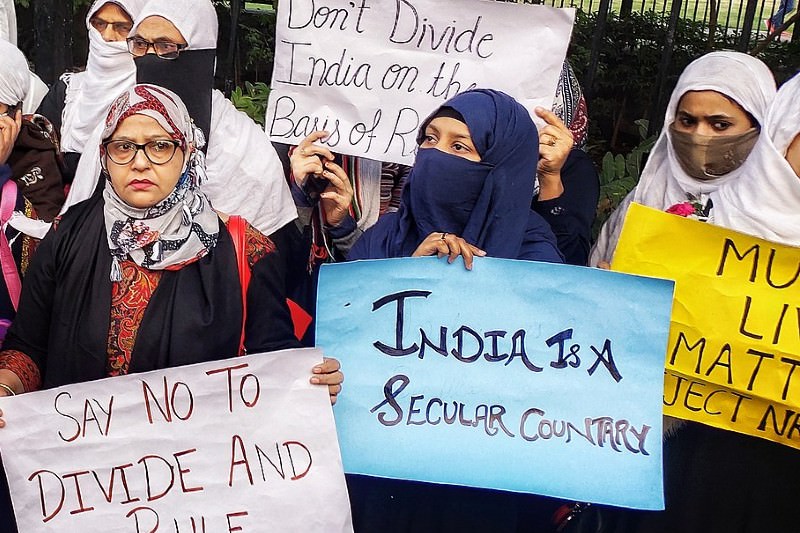
INTERNATIONAL
- Sundhya Pahuja
- 16 January 2020
9 Comments
It is ironic for those of us who have long wished for a closer and more respectful relationship between India and Australia to be arguing now for caution. But perhaps the time has come for a relationship of political solidarity between the people of India and the people of Australia, rather than the economic expediency that seems to be on offer.
READ MORE 
-
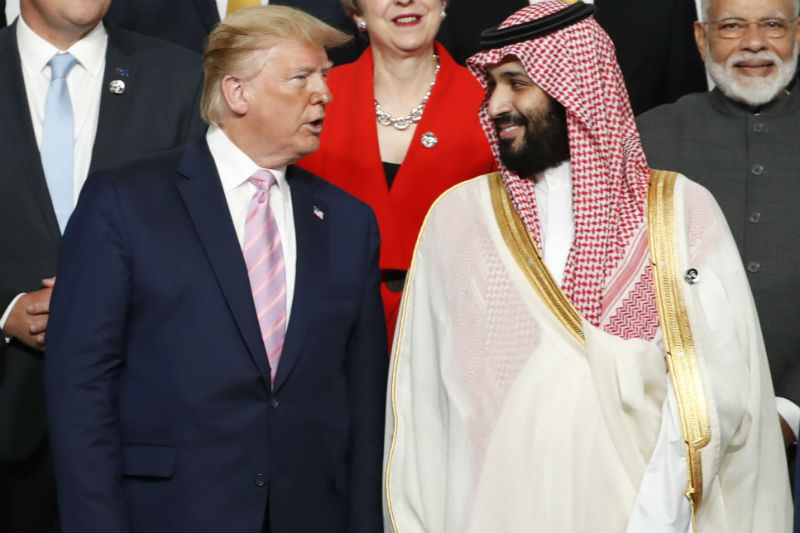
INTERNATIONAL
- Jeff Sparrow
- 08 July 2019
5 Comments
When discussing climate change, it's easy to depict the world's reliance on fossil fuels as primarily a technological problem, to be resolved by new methods for harnessing renewable energies. But that's only part of the story, as the example of Saudi Arabia shows.
READ MORE 
-
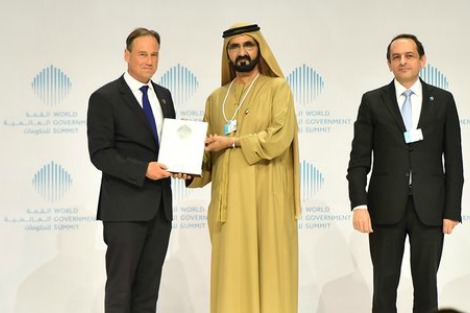
ENVIRONMENT
- Greg Foyster
- 15 February 2016
16 Comments
It would have made a great April Fools joke, if it wasn't February. On Wednesday, we woke to the news that Greg Hunt, environment minister in the most anti-environment government in Australian history, had been awarded 'World's Best Minister' at an international summit in Dubai. But maybe the award had nothing to do with Hunt's track record at home. In the grubby way of politics everywhere, maybe it is a favour returned. A thank you from an oil-rich nation for making it look good in the past.
READ MORE 
-

AUSTRALIA
- Tim Robertson
- 25 November 2015
17 Comments
The vitriol with which much of the liberal mainstream media responded to Tony Abbott's Margaret Thatcher memorial speech last month confirmed what many rightwingers have been claiming: that Abbott's problem was not his policies, but his inability to sell them. As communicators, he and Turnbull are poles apart. To date, the most striking achievement of the Malcolm Turnbull confidence trick is that he's rewarded for his apparent progressivism, even when he speaks explicitly against it.
READ MORE 
-
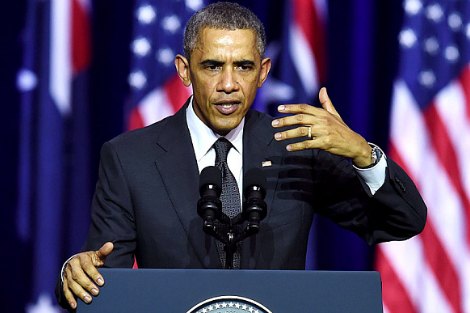
AUSTRALIA
- Andrew Hamilton
- 27 November 2014
15 Comments
President Obama stole the G20 show with his mesmerising Queensland University address, after having dominated APEC with Xi Jinping and their climate change agreement. Such unrelated events challenge the belief that agendas can be centrally controlled, and that good governance is constituted by discipline and sole ownership of the agenda. More recently, the Senate has managed to call the shots and give priority to human good over ideology.
READ MORE 
-
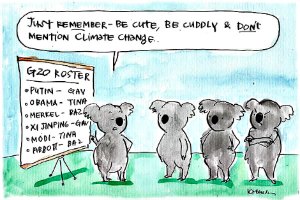
CARTOON
- Fiona Katauskas
- 19 November 2014
3 Comments
View this week's offering from Eureka Street's award winning political cartoonist.
READ MORE 
-
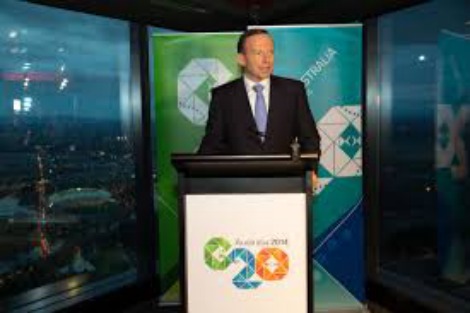
AUSTRALIA
- Tony Kevin
- 18 November 2014
4 Comments
Abbott's best G20 moment was his closing media conference, where he gave an outlined the meeting's achievement of a 2.1 per cent global economic growth plan over the next few years. But on two important matters – climate change and Ebola - the dynamic of the meeting got out of his control and produced outcomes clearly not to his liking. Abbott's counter-strategy – quite successful in retrospect – was to set media hounds running to the side-drama of Vladimir Putin.
READ MORE 
-
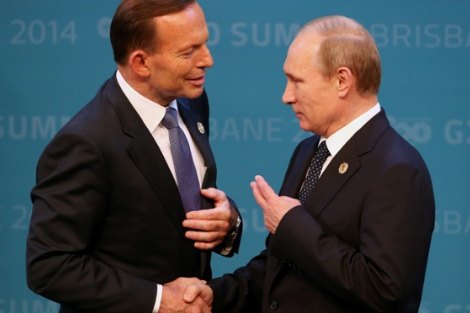
INTERNATIONAL
- Justin Glyn
- 17 November 2014
17 Comments
Amid talk of whether Vladimir Putin would leave the G20 early and numerous reports of frosty encounters between him and other summit leaders, Western media coverage has portrayed him as an erratic and dangerous dictator whose rule damages the once-great country he leads. But it would be foolish to pretend that the West did not take advantage of the weakness of the former Soviet states in the 1990s. Russia was looted of its assets, many of which found their way abroad.
READ MORE 
-
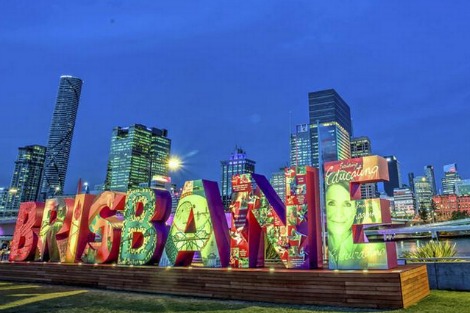
AUSTRALIA
- Michael Mullins
- 17 November 2014
10 Comments
The Murdoch press was reporting on Friday that Australian warships had been dispatched to 'intercept' the Russian flotilla 'steaming towards the G20 summit in Brisbane'. Serious heads needed to prevail for the G20 to maintain its relevance and Australia its credentials to host important events that do not concern sport. The Brisbane G20 had an opportunity build on the climate change action momentum established at APEC, or yield to the new climate deniers who don't accept that renewable energy is also good for economic growth.
READ MORE 
-
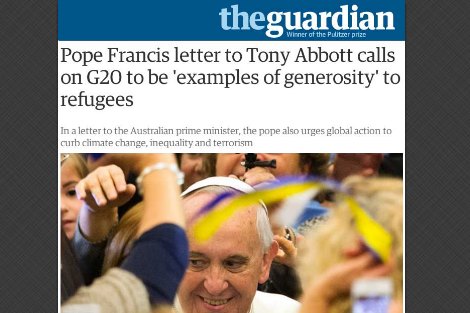
AUSTRALIA
- Andrew Hamilton
- 14 November 2014
18 Comments
The news that Pope Francis has written a letter to Tony Abbott makes one pause. It is usual for Popes to write such letters, and luckily this one is no shirtfront. Instead it will probably be treated as a hospital pass. The trouble with swerving away from hospital passes, though, is that the watchers may see you as cowardly.
READ MORE 